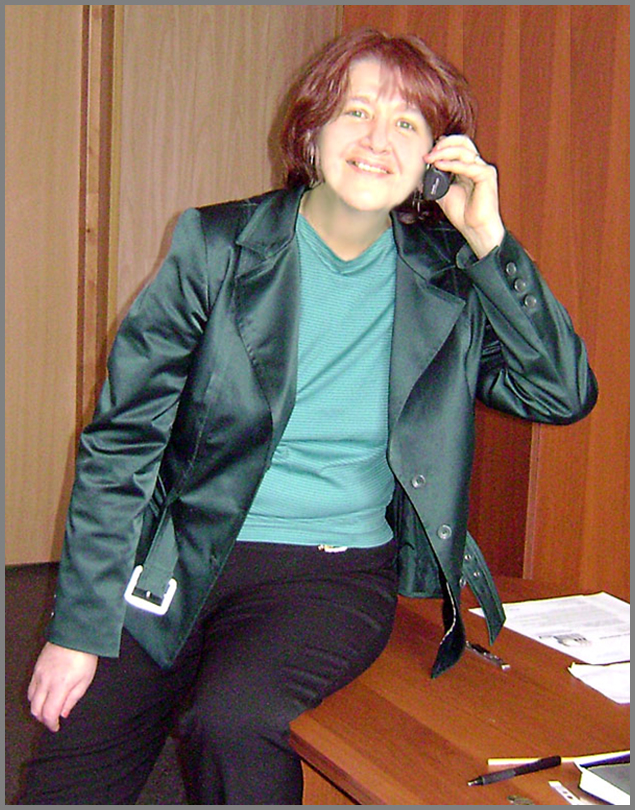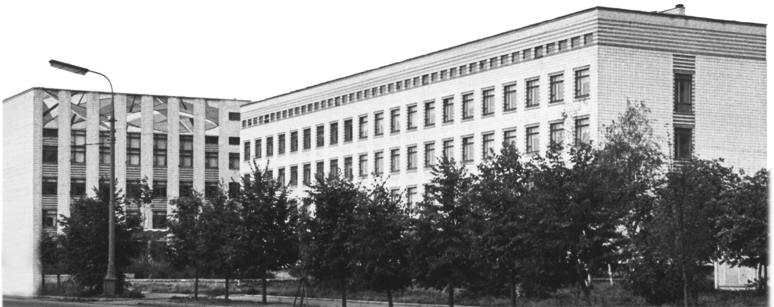
Research interests:
Physical organoelement chemistry; molecular spectroscopy; non-covalent interactions involving metal complexes, transition metal and main group element hydrides; supramolecular compositions. Novel types of hydrogen bonding in organometallic chemistry; mechanisms of reactions involving migration of hydrogen ions (proton transfer, hydride transfer); formation and reactivity of dihydrogen complexes
Main scientific attainments:
Regularities of intramolecular hydrogen bonding to transition metal atoms have been educed. Three new types of intermolecular hydrogen bonds typical for organometallic compounds have been discovered: to transition metal atom as proton acceptor, to hydride ligand as proton acceptor and of hydride ligand as proton donor; spectroscopic criteria of their formation have been established. Approaches to mechanistic studies of two- and three-step reactions of transition metal and group 13 element hydrides with proton donors have been developed. Formation of unusual hydrogen bonds with hydride ligand or transition metal atom has been shown to determine the proton transfer pathway and the reaction selectivity. Thermodynamic and kinetic parameters of each reaction step have been determined; the experimental and theoretical data about the potential energy profiles of the reaction have been acquired.
Publications:
over 150 papers and reviews
Most important publications
1. E.S.Shubina, N.V.Belkova, A.N.Krylov, E.V.Vorontsov, L.M.Epstein, D.G.Gusev, M.Niedermann, H.Berke. Spectroscopic evidence for intermolecular MH...HOR hydrogen bonding. Interaction of WH(CO)2(NO)L2 hydrides with acidic alcohols. J. Am. Chem. Soc., 1996, 118, 1105.
2. L.M.Epstein, E.V.Bakhmutova, L.N.Saitkulova, V.I.Bakhmutov, N.P.Gambaryan, A.L.Chistyakov, I.V.Stankevich, E.S.Shubina. Unusual hydrogen bonds with hydride atom in boron hydrides as proton acceptor. Spectroscopic and theoretical studies. Inorg Chem., 1997, 37, 3013.
3. L.M.Epstein, N.V.Belkova, E.S.Shubina. Dihydrogen bonded complexes and proton transfer to hydride ligand by spectral (IR, NMR) studies. In Recent Advances in Hydride Chemistry, Eds. R. Poli and M. Peruzzini, Elsevier, Amsterdam, 2001, p. 351.
4. L. M. Epstein, E.S. Shubina. New types of hydrogen bonding in organometallic chemistry. Coord. Chem. Rev., 2002, 231, 165.
5. N. V. Belkova, M. Besora, L. M. Epstein, A. Lledos, F. Maseras, E. S. Shubina. Influence of Media and Homoconjugate Pairing on Transition Metal Hydride Protonation. An IR and Dft Study on Proton Transfer to CpRuH(CO)(PCy3). J. Am. Chem. Soc., 2003, 125, 7715.
6. E. V. Bakhmutova, V..I. Bakhmutov, N. V. Belkova, M. Besora, L. M. Epstein, A.Lledos, G. I. Nikonov, E. S. Shubina, J. Tomas, and E. V. Vorontsov. First investigation of non-classical dihydrogen bonding between an early transition metal hydride and alcohols. IR, NMR and DFT approach. Chem. Eur. J., 2004, 10, 661.
7. N. V. Belkova, E. S. Shubina, L.M. Epstein. Diverse World of Unconventional Hydrogen Bonds. Acc. Chem. Res. 2005, 38, 624
8. N. V. Belkova, E. I. Gutsul, O. A. Filippov, V. A. Levina, D. A. Valyaev, L. M. Epstein, A. Lledos, E. S. Shubina. Intermolecular Hydrogen Bonding between Neutral Transition Metal Hydrides (h5-C5H5)M(CO)3H (M = Mo, W) and Bases. J. Am. Chem Soc., 2006, 128, 3486.
9. O. A. Filippov, V. N. Tsupreva, L. M. Epstein, A. Lledos, E. S. Shubina, “Intermolecular HH Vibrations of Dihydrogen Bonded Complexes H3EH-···HOR in the Low-Frequency Region: Theory and IR Spectra, J. Phys. Chem. A 2008, 112, 8198–8204
10. O. A. Filippov, V. N. Tsupreva, L. M. Golubinskaya, A. I. Krylova, V.I. Bregadze, A. Lledos, L. M. Epstein, E. S. Shubina Proton-Transfer and H2-Elimination Reactions of Trimethylamine Alane: Role of Dihydrogen Bonding and Lewis Acid-Base Interactions Inorg. Chem. 2009, 48, 3667-3678.
11. P. A. Dub, O. A. Filippov, N. V. Belkova, J.-C. Daran, L. M. Epstein, R. Poli, E. S. Shubina, “Hydrogen bonding to carbonyl hydride complex Cp*Mo(PMe3)2(CO)H and its role in proton transfer”, Dalton Trans., 2010, 39, 2008–2015
12. N. V. Belkova, L. M. Epstein, E. S. Shubina, “Dihydrogen Bonding, Proton Transfer and Beyond: What We Can Learn from Kinetics and Thermodynamics” (Microreview) Eur. J. Inorg. Chem. 2010, 3555–3565


